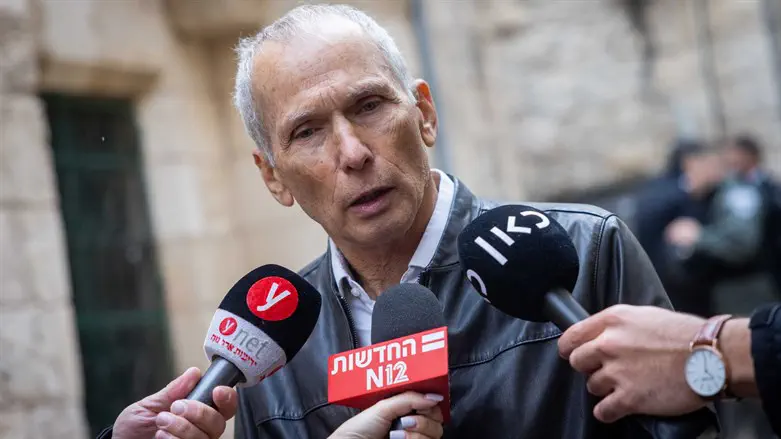
Public Security Minister Omer Barlev spoke on Monday evening at a ceremony of the Israel Prison Service ahead of Israel’s Independence Day.
Minister Barlev told senior IPS officials, "You managed to prevent the hunger strike that was planned by security prisoners on the eve of Ramadan, and which could have set Judea and Samaria on fire. Your combined activities during the Ramadan period, in which you captured with impressive efficiency the inciting and dangerous factors, helped us to prevent a serious escalation in the situation."
"You knew how to act with determination, responsibility, flexibility and judgment, while understanding the complexity of the task and its sensitivity. And you deserve all the praise for that," he added.
Barlev further said, "As Public Security Minister, I promise you to continue to work to improve your working conditions, because the place that the Israel Prison Service has in our lives is clear to me: Without a strong prison service, there will be no strong democracy."
Jailed terrorists have more than once used the method of hunger strikes in order to pressure Israel to release them or improve the conditions of their imprisonment.
Israel has several times in the past caved to the pressure and released some hunger strikers.
Some 1,550 Palestinian Arabs imprisoned in Israel ended a hunger strike in May of 2012, in exchange for a package of measures which would allow visits from relatives in Gaza and the transfer of detainees out of solitary confinement.
At times, the terrorists were found to be secretly eating during the hunger strike. A prominent example of this was in 2017, when the Israel Police released footage of archterrorist Marwan Barghouti, who was caught eating in secret while maintaining the pretenses of his own hunger strike.
